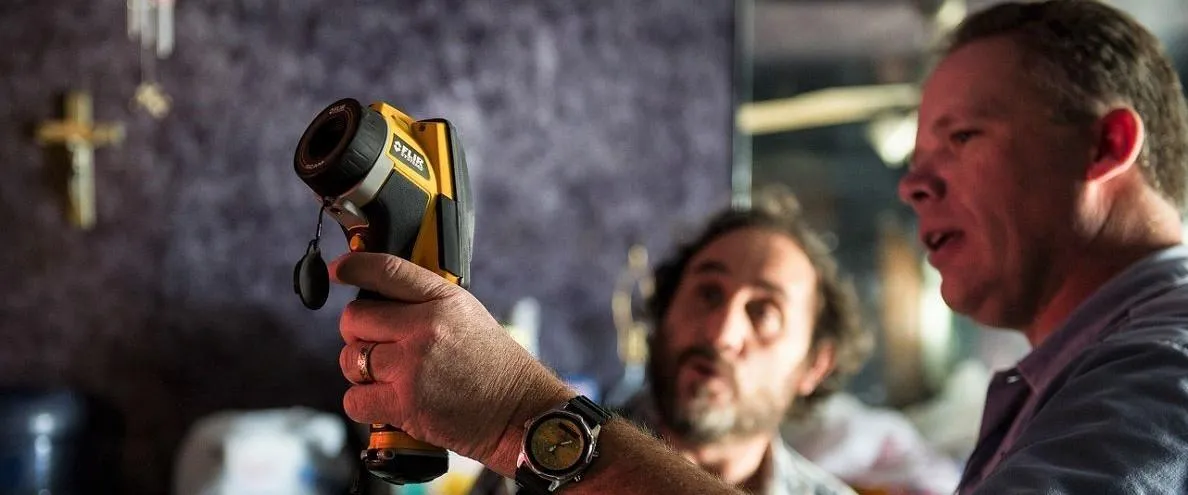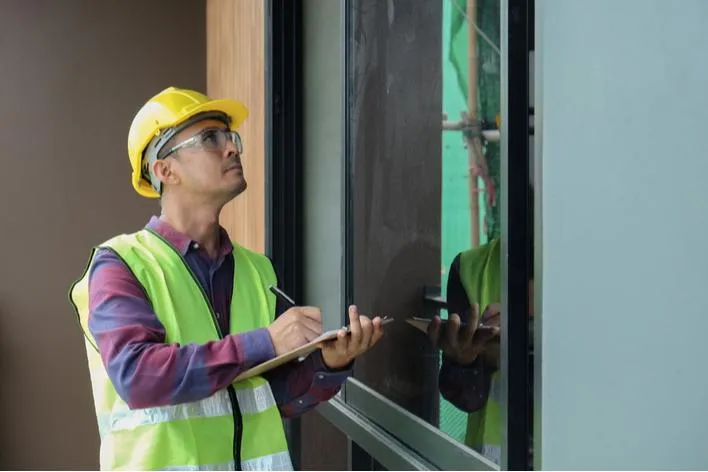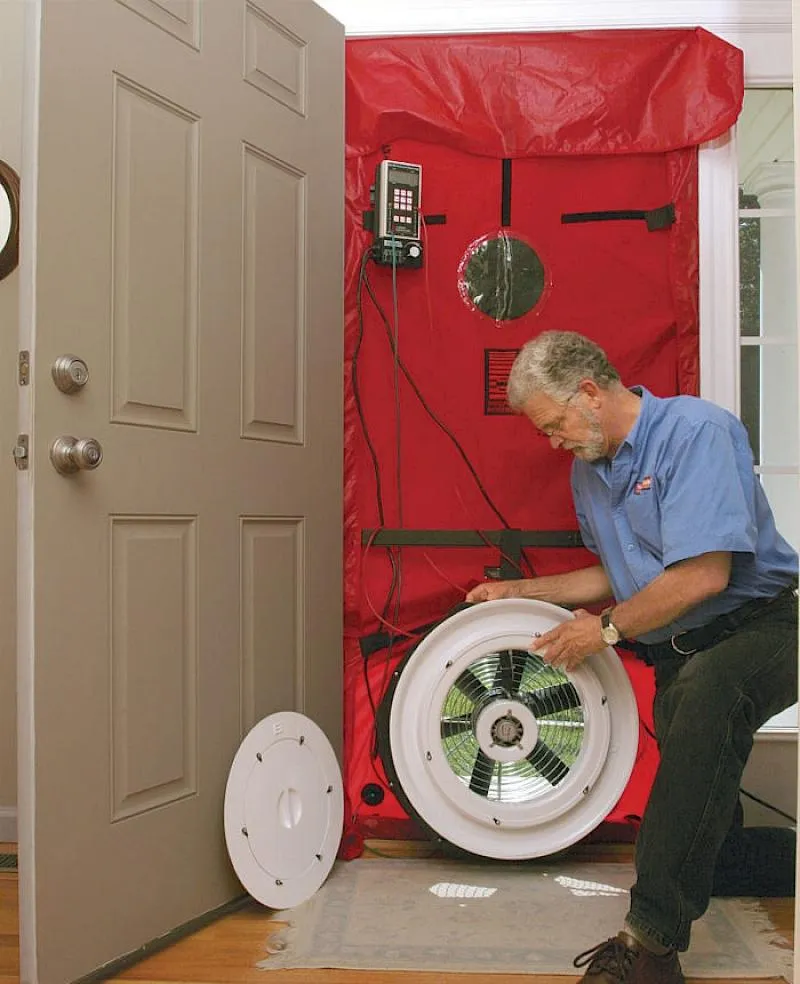Home Energy Audit
Is It Worth Doing?

Energy Audits
With utilities often the second or third-highest budget line items, all homeowners want to save money on utilities, but frequently:
You aren't sure what to prioritize for investment of time and money
You don't have the resources to investigate your home and systems
You don't have the data to make the a decision around energy efficiency
Why haven't you heard of an energy audit?
Although energy audits are readily available to most people, few folks choose to get one. The likely reason is that most are unaware they exist or how beneficial they can be.
According to a 2020 survey report by the Department of Technology and Society at Stony Brook University in New York, only 9% of survey respondents had undergone an energy audit.
An energy audit can help reduce your carbon footprint by pinpointing trouble areas in your home that may be wasting energy. And as you know, reducing your energy consumption can help save money on your energy bill.
This guide will further explain what an energy audit is, why it can reduce energy costs, and how it can help your home.
What Is an Energy Audit?
An energy audit is completed at a home to determine its energy efficiency.
Simply put, energy efficiency means using less energy to do the same job. The audit will provide you with a complete electricity consumption and energy efficiency assessment.
You can obtain important information regarding your energy usage and Energy Star rating from the audit report. With this information, you can identify and correct any energy usage issues to cut electricity costs.
Who Conducts an Energy Audit?
A registered energy advisor or energy auditor will conduct a home energy audit.
What Is Done During an Energy Audit?
There are three parts to an energy audit: evaluation, testing, and efficiency recommendations.
Once the audit is complete, the auditor will provide you with a report outlining energy consumption, a final energy grading, and home improvement suggestions to cut energy costs on
energy bills.
Part One: The Evaluation
A registered energy auditor will come to your home and conduct a walk-through of the inside and outside to determine your energy usage and problem areas.
While conducting their walk-through, they will analyze specific elements that contribute to your home’s overall energy efficiency.
The auditor will analyze the heating and cooling systems, or HVAC system, and your insulation levels, including the basement and exterior attic walls.
Part Two: Airtightness And Other Tests
The second part of an energy audit involves an airtightness test, also known as a blower door
test. During this test, an energy auditor will determine how tight a homes’s envelope is by checking for air leakage in the house. During an airtightness test, an air sealing
procedure is done. The auditor will seal the front door of the home, and they will place a large fan inside.
The testing fan will pull the interior air outside the building, which will force outside air to come through any cracks or holes. Often, these air leaks are easily felt with your hand, but most auditors will use feathers or incense to accurately determine where the cracks are located.
In addition to the airtightness test, an energy auditor will assess your home’s energy use by conducting a thermographic scan. Moreover, they will use various energy usage equipment items to measure energy consumption, such as infrared cameras, surface thermometers, and furnace efficiency meters.
Finally, the auditor will analyze past utility bills.
Part Three: Recommendations to Improve Energy Efficiency
Once your residential has been evaluated and testing has been completed, the energy auditor will provide you with a thorough list of recommendations regarding energy efficiency improvements you can undertake. If implemented, most of the recommendations will help you save money on utility bills.
Why Is An Energy Audit Important?

Conducting a routine energy audit ensures you’re reducing your carbon footprint and continuing to be energy efficient by continuously employing new energy conservation improvements. Here’s a quick list of why an energy audit is important:
An energy audit will identify energy-saving opportunities.
It will help you understand your energy usage and ways to use energy better.
An energy audit can identify safety concerns with electrical systems, wiring, and ventilation, thus making your home safer.
It will increase a home’s resale value.
An energy audit will help you identify how to reduce carbon monoxide production in the home.
Are There Different Types of Energy Audits?
Two types of energy audits are available: a preliminary energy audit and a detailed energy audit. The type you choose will depend on your needs.
Preliminary energy audit: This type of audit is simply a data-gathering exercise that offers a preliminary analysis. Often the auditor will conduct this type of audit via a walk-through investigation. A professional energy auditor will utilize readily available data and limited diagnostic instruments to complete a preliminary energy audit.
Detailed energy audit: This type of audit is completed by a professional auditor who monitors, analyzes, and verifies energy use to establish problem areas and ways to implement energy efficiency improvements. They will present their findings and suggestions in a detailed technical report. Additionally, during thorough energy audit, a professional energy auditor will use sophisticated instrumentation such as a flue gas analyzer, a scanner, and a flow meter.
How Do I Conduct an Energy Audit of My Own Home?
If you don’t want to pay for the services of a professional energy auditor and prefer to take a do-it-yourself approach, you can conduct a DIY energy audit of your home.
It will be helpful to keep a checklist of the areas that you have audited and note the problems you found. This list will assist you with prioritizing the energy efficiency upgrades you need to consider.
It’s essential to remember that completing a do-it-yourself home energy audit will not be as reliable or credible as hiring a professional. Also, leave it to a pro if you’re not sure about how to inspect or remedy a problem.
Step One: Look for air leaks. The first step is to identify any drafty areas. Air leaks are often found at junctures between doors, windows, electrical outlets, walls, and ceilings. Should you locate a leak, consider sealing it with caulk or weatherstripping.
Step Two: Evaluate your home’s ventilation. After you’ve looked for air leaks, evaluate your home’s ventilation. If you burn fuel like natural gas, propane, or wood, you must ensure an adequate and healthy air supply.
Step Three: Check your insulation levels. This step is pretty simple. You need to check your home’s insulation levels by examining the insulation in your attic and around your heating and cooling systems. Lack of proper insulation causes higher energy usage, especially during the winter.
Step Four: Evaluate your lighting. It might not seem like a big energy user, but the lighting in your house can cause sky-high energy bills. Switching to LEDs, energy-saving incandescent bulbs, or CFLs can help.
Step Five: Check your appliances and electronics. One of the best ways to save energy in your home is by using energy-efficient appliances. That’s why when conducting your energy audit, it’s important to consider the types of appliances and electronics you have. Are they Energy Star-certified? Or are they old and less efficient?
Is an Energy Audit Free?

A few energy service providers and various utility programs provide homeowners with a free energy audit. Typically, these low-cost energy audits are not detailed and only offer generalizations about the energy use in your building. Additionally, free energy audits are not likely to provide you with customized energy saver solutions.
How Much Should an Energy Audit Cost?
A home energy audit will come in at an average cost of just over $450-$650. Costs can range significantly, depending on where your home is located.
Ultimately, the cost will depend on whether you’re auditing a residential or commercial address, the size of the property, and the type of energy audit you have chosen.
If you choose to have an energy audit done, you could potentially receive energy rebates to cover much of the cost
How Long Do Energy Audits Take?
The time it takes to complete an energy audit depends on the size of your property and the number of appliances and electronics you have. It will also depend on how many windows and doors you have and the type of audit you have chosen. On average, a home energy audit takes between three to four hours to complete.
What Is an Energy Audit Checklist?
Professional energy auditors and those who choose to audit their own homes will use an energy audit checklist. This checklist is a printed report detailing the various aspects of a home that need to be audited.
On your energy audit checklist, you will likely find the following categories:
Lighting
Electric motors
Air leakage
Insulation
Water heating
Household
Heating systems
Cooling systems
Electronics
Doors and windows
Habits
Is an Energy Audit Worth Doing?
Yes, energy audits are worth doing. They assess how energy-efficient your home is so you know where to make changes. You can save from 5–30% on your energy bills by implementing your auditor’s suggestions. Plus, by making such changes, you can positively impact the environment and reduce your carbon emissions.
An Energy Audit Is an Energy-Saving Endeavor
The reason for doing an energy audit is to identify energy efficiency problems and energy-saving opportunities in a home. Essentially, with a detailed energy audit report, you can see what is using more electricity than it should. This will help you determine where you can make improvements that will not only help you save money on electricity costs but will also help you better fight climate change.


Mike Morris has been helping homeowners with solar systems and off-grid systems for 6 years. He has created custom solutions on homes ranging from:
1) $150,000 homes with 1,500 sqft that needed basic solar systems
2) To $30,000,000 homes with 22,000 sqft that required 155 solar panels, 28 batteries, 2 massive home backup generators, and multiple EV chargers to create a completely self-sufficient fortresses.
Connect With Me
YouTube
Podcast
Solar Solutions
Solar Systems
Batteries
Off-Grid Systems
Home Backup Generators
EV Chargers
Roofing
Free Quote
Insurance Claims
Gutters
Siding
Free Gift Cards
$100 Survival Gift Card
Energy Audits
Home Energy Audits
Energy Leaks
Thermal Imaging
Gas Leaks
Insulation Audits
Moisture Detection
DISCLAIMER: The solar figures stated anywhere on this page are individual solar figures and marketing results. Please understand that solar figures are not typical, and we are not implying that you will duplicate them. We have the benefit of doing solar for 5+ years, and have an established following as a result.
>ABOUT THE STRATEGY SESSION: After completing an application, you will get the opportunity to schedule in a Strategy Session with a qualified person from our team. This is completely optional. The Session lasts about 60 minutes and if you do not want to work more closely with us, you can leave without buying anything. The Strategy Session will provide insights on your solar project and offer saving solutions that you will be able to implement right away.
NOT FACEBOOK™: This site is not a part of the Facebook™ website or Facebook Inc. Additionally, This site is NOT endorsed by Facebook™ in any way. FACEBOOK™ is a trademark of FACEBOOK™, Inc.Hi! We use cookies, including third-party cookies, on this website to help operate our site and for analytics and advertising purposes. For more on how we use cookies and your cookie choices, go here for our cookie policy!
Terms of Use | Privacy Policy | Savings Disclaimer
Copyright 2023 - AskSolarMike - All Rights Reserved
